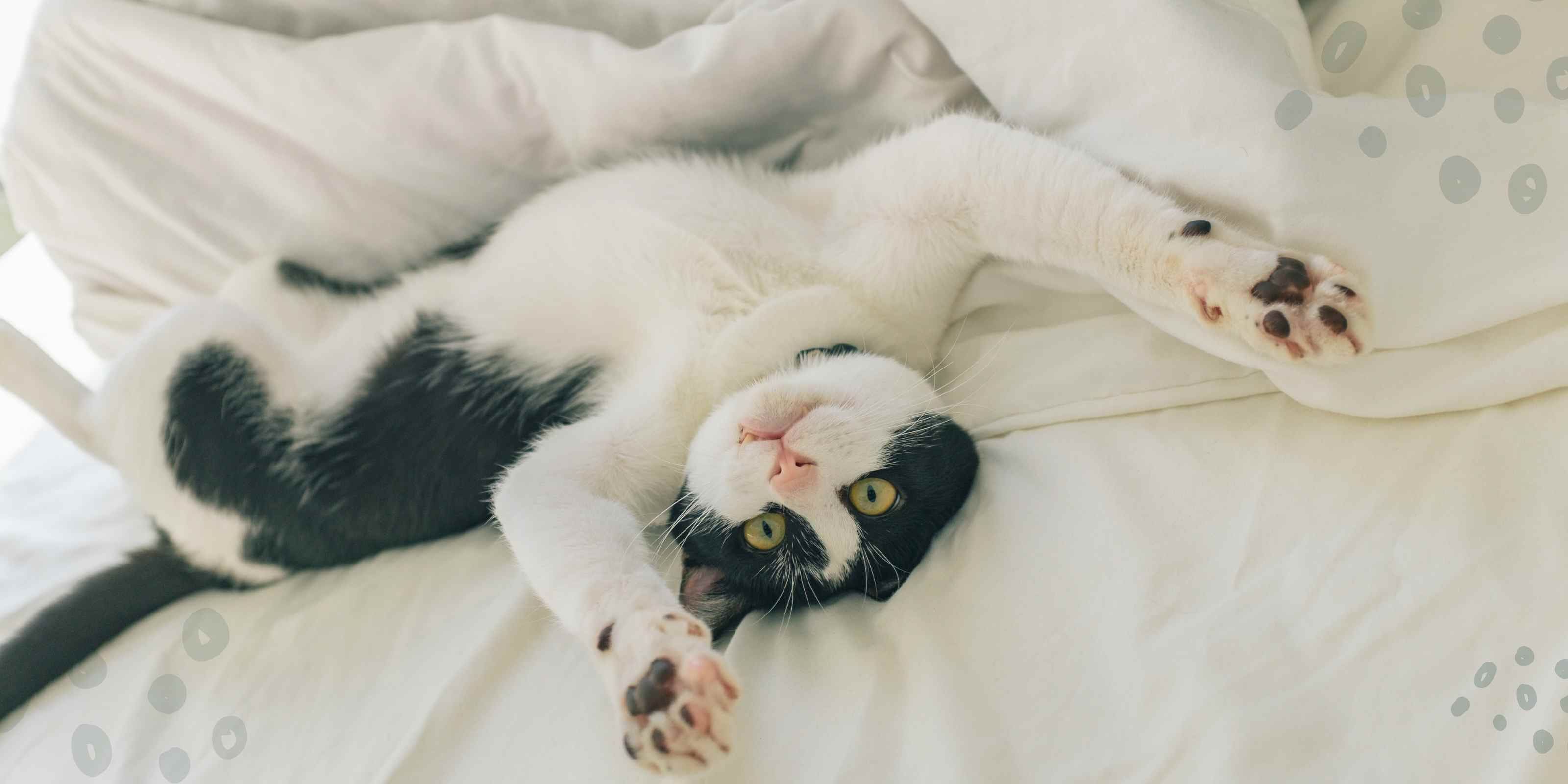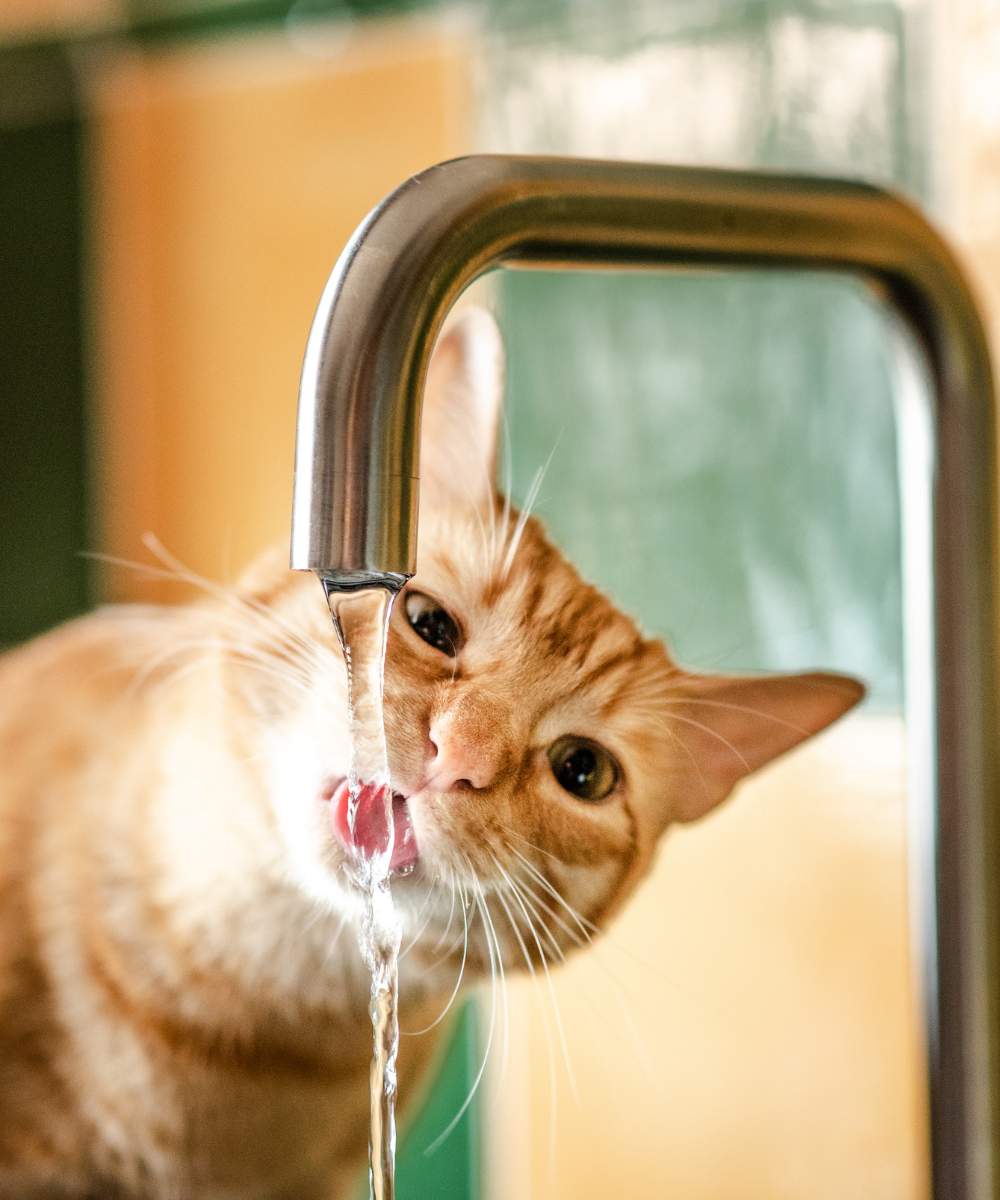
Diabetes mellitus
Feline diabetes mellitus, also known as feline diabetes mellitus, is a serious metabolic disorder that can occur in cats and includes symptoms such as increased drinking and urination, weight loss despite increased appetite, and decreased activity or energy. Changes in behavior and toilet habits can also be signs.
Learn more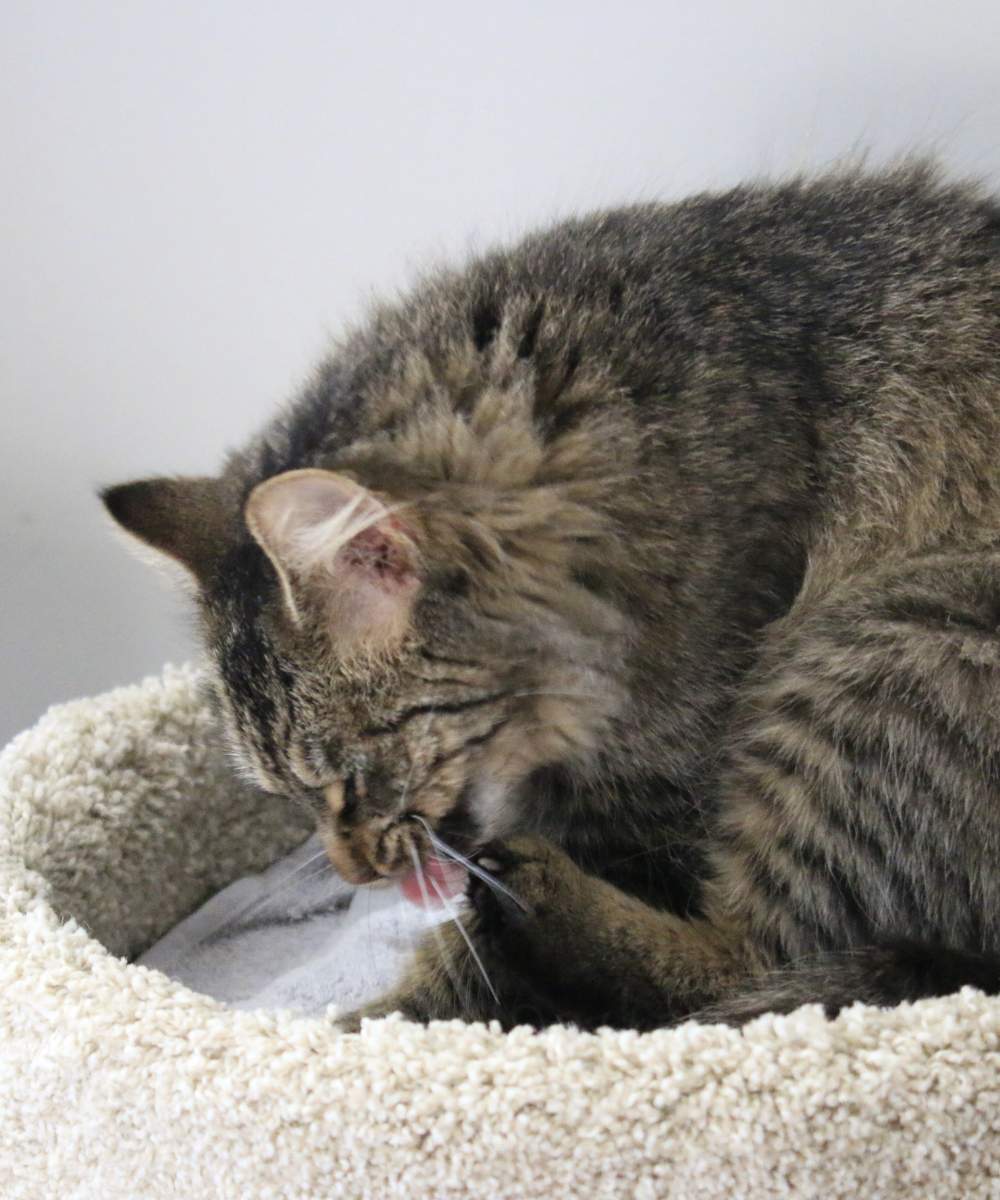
Bladder infection
Bladder infection in cats is a common condition that affects the urinary bladder. Cat parents should be alert and watch for signs such as frequent or infrequent urination because it is often associated with pain, uncleanliness outside the litter box, and the presence of blood in the urine. Changes in behavior, such as increased restlessness or licking the genital area, can also indicate a bladder infection.
Learn more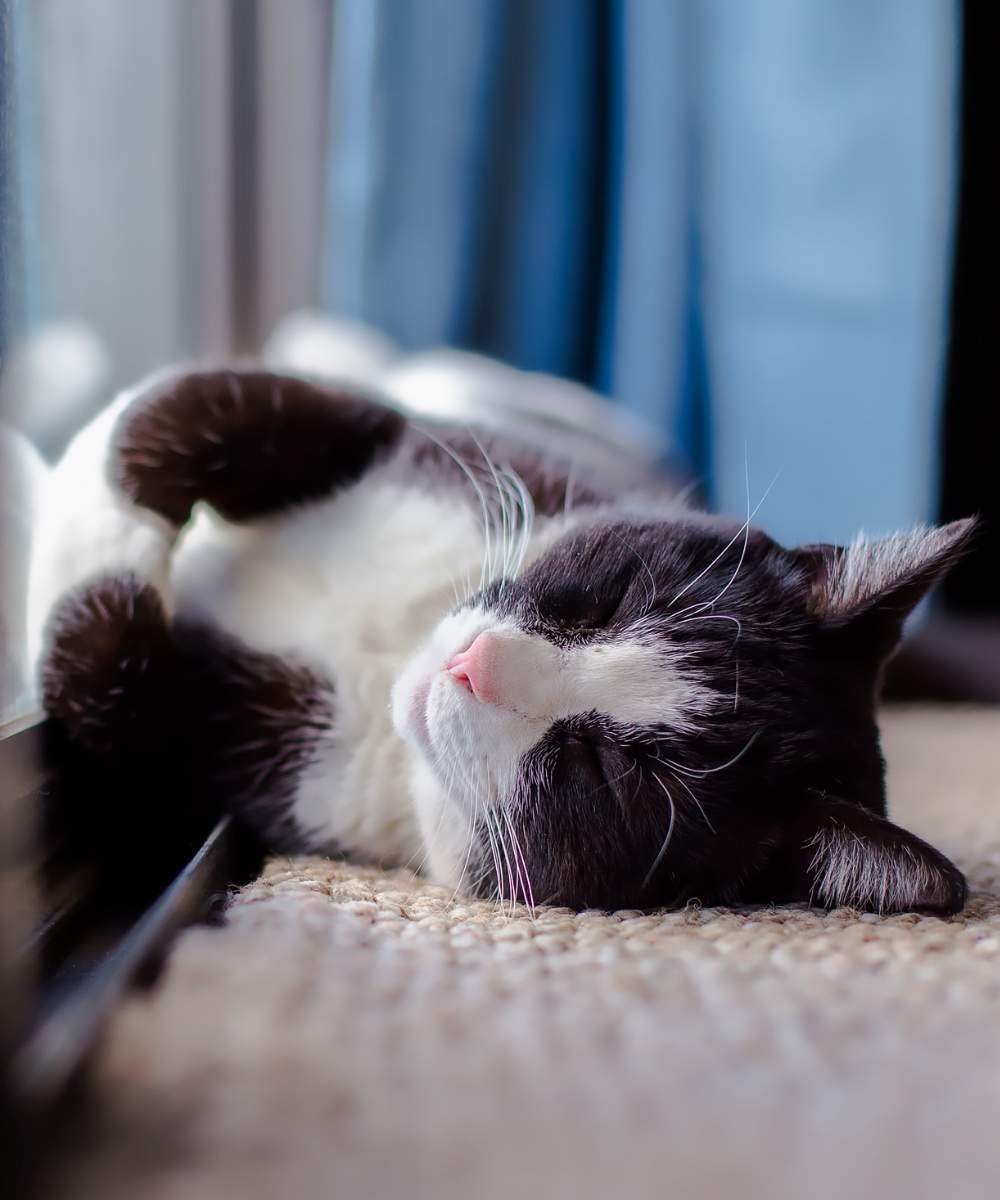
Kidney disease
Kidney disease is common in cats. Kidney function can gradually decline and lead to serious complications. Increased thirst and urination, loss of appetite, weight loss and a dull coat are typical signs of kidney disease. Vomiting, increased tiredness, and behavior changes can also be symptoms.
Learn more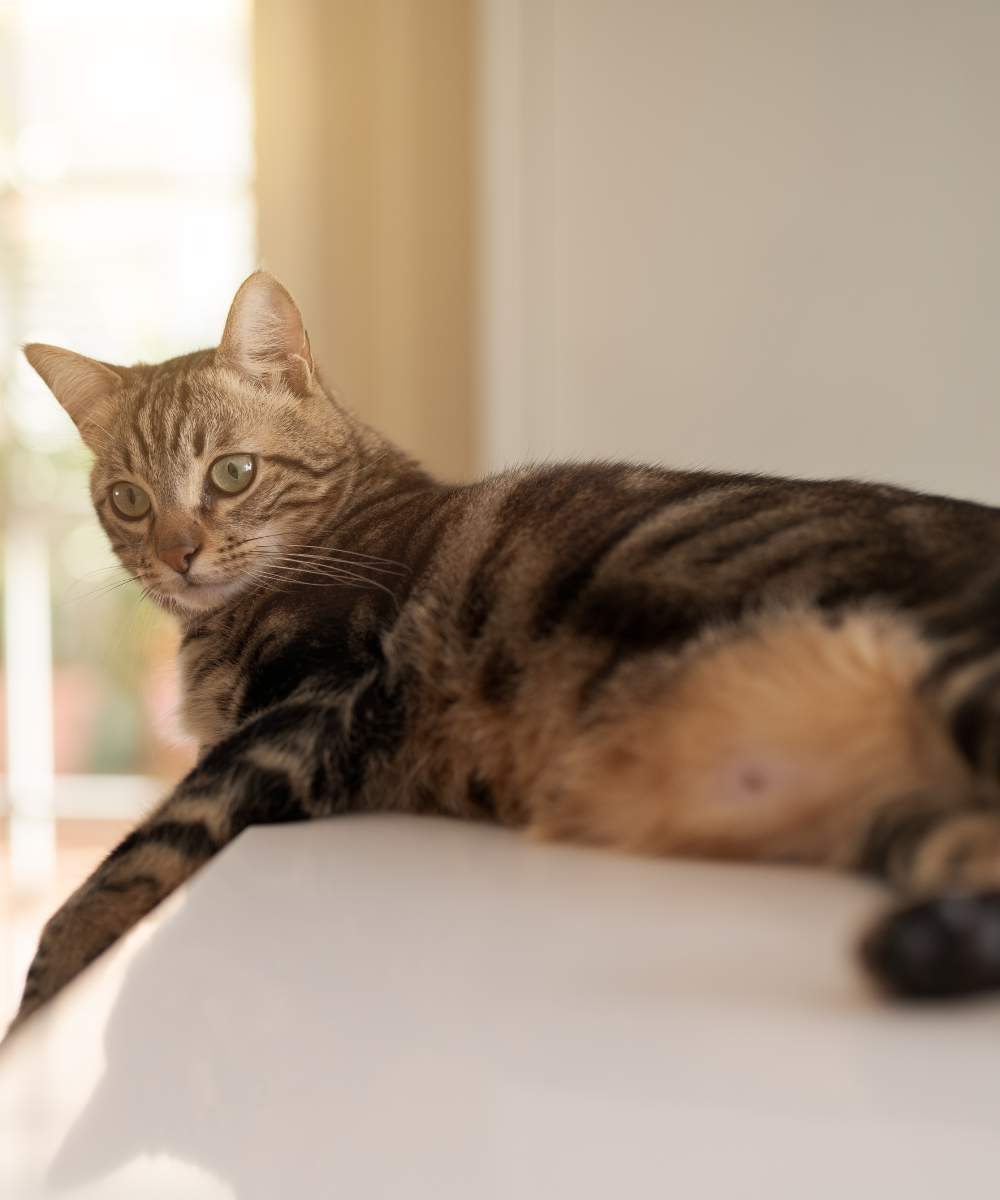
Obesity
Obesity in cats is a growing health problem. Signs of this can be a noticeably plump body shape, movement difficulties and changes in everyday behavior. Additional indicators could be breathing problems and an increased need for sleep. Regular weighing is important to keep an eye on the cat's weight and to identify health risks in good time, because obesity can have serious consequences such as diabetes, joint problems and cardiovascular diseases.
Learn more
